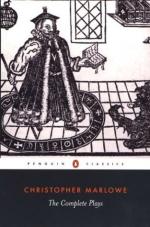|
This section contains 5,399 words (approx. 18 pages at 300 words per page) |

|
SOURCE: "The Precarious Legacy of Renaissance Humanism in the Faust Legend," in The Harvest of Humanism in Central Europe: Essays in Honor of Lewis W. Spitz, edited by Manfred P. Fleischer, Concordia Publishing House, 1992, pp. 303-15.
In the following essay, Baron discusses the evolution of the Faust legend from its inception through its transformation into both a tale of warning against Renaissance humanism and its veneration of the heroes of classical antiquity; and as a Protestant condemnation of the Catholic Church.
Although Goethe portrayed his Faust as a Renaissance scholar, the original legend on which he based his story displays surprisingly little interest in the past and even less in the ambitions of the humanistic movement. But to obtain an accurate picture about the legacy of Renaissance humanism in the legend, we need look at Faust as a necromancer, a role in which Faust appears most prominently as...
|
This section contains 5,399 words (approx. 18 pages at 300 words per page) |

|


